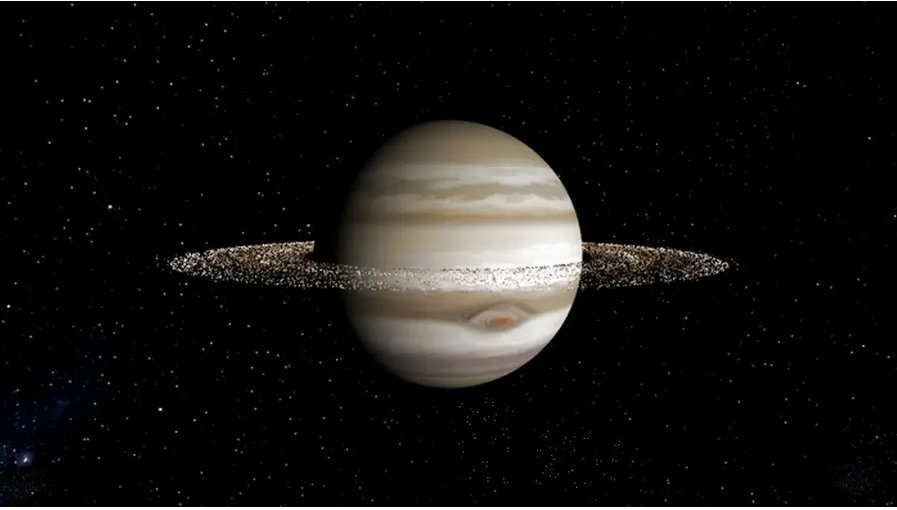!Scientists solve the mystery of Jupiter's phantom rings

Astronomers who set out to understand why Jupiter's rings are missing, announced in a statement Thursday that they may have finally figured out why Jupiter doesn't have Saturn-like rings, as the secret lies in the gas giant's large moons.
According to NASA, unlike Saturn's icy rings filled with large chunks of ice and rock, Jupiter's rings are made up of tiny dust particles. Jupiter's rings are so weak we didn't notice them until 1979, thanks to the agency's Voyager 1 spacecraft.
"We found that the Galilean moons of Jupiter - one of the largest in our solar system - would quickly destroy any large rings that might form," said Stephen Kane, an astrophysicist from the University of California, who led the research. any time in the past."
In other words, Kane and his colleagues think that the gravitational force and sheer force of Jupiter's moons—particularly Galileo, the 4th largest—would have wiped out any and all matter trying to produce Saturn-like rings around the gas giant.
"Massive planets form massive moons, which prevents them from forming large rings, and this probably explains why Neptune's rings are also lighter," Kane explained.
To reach their conclusions, the team ran dynamic computer simulations of Jupiter's moons, as well as Jupiter itself, which orbits the sun. Then they waited and watched to see how long it would take for some of the Saturn-like rings to form, and note what happened when they started to form.
The results showed the truncating of the stable orbits imposed by the Galilean satellites, and the dynamic drying of the dense ring material within a certain region.
On the importance of these rings, Kane said: Rocky or icy rings can hold a great deal of information for scientists looking to understand a particular planet's past.
"For us astronomers, it's like bloodstains on the walls of a crime scene. When we look at the rings of giant planets, it's evidence that something catastrophic has happened to put that substance there." Before running the simulations, Kane had hoped Jupiter would carry some of the stronger rings in the past, but he might have lost them over time, and the researcher concluded that the rings might be temporary.
"It has long bothered me why Jupiter doesn't have more amazing rings than Saturn," Kane said, also referring to the team's next research step set to orbit the mysteries of planetary rings, this time around another gaseous planet, Uranus.
Researchers in the study believe that it is possible that Uranus appears upside down on its side due to its collision with another celestial body a long time ago, and they also believe that its rings hold secrets that will be unlocked if their suspicions are correct.
https://www.arageek.com/news/scientists-mightve-solved-the-mystery-of-jupiters-frail-rings?fbclid=IwAR0JsYJgIa3hm2_A0yRhX_lE3kuXq5QJn3nFR8Ry2xMpONlyOE6MldxS8Bg

